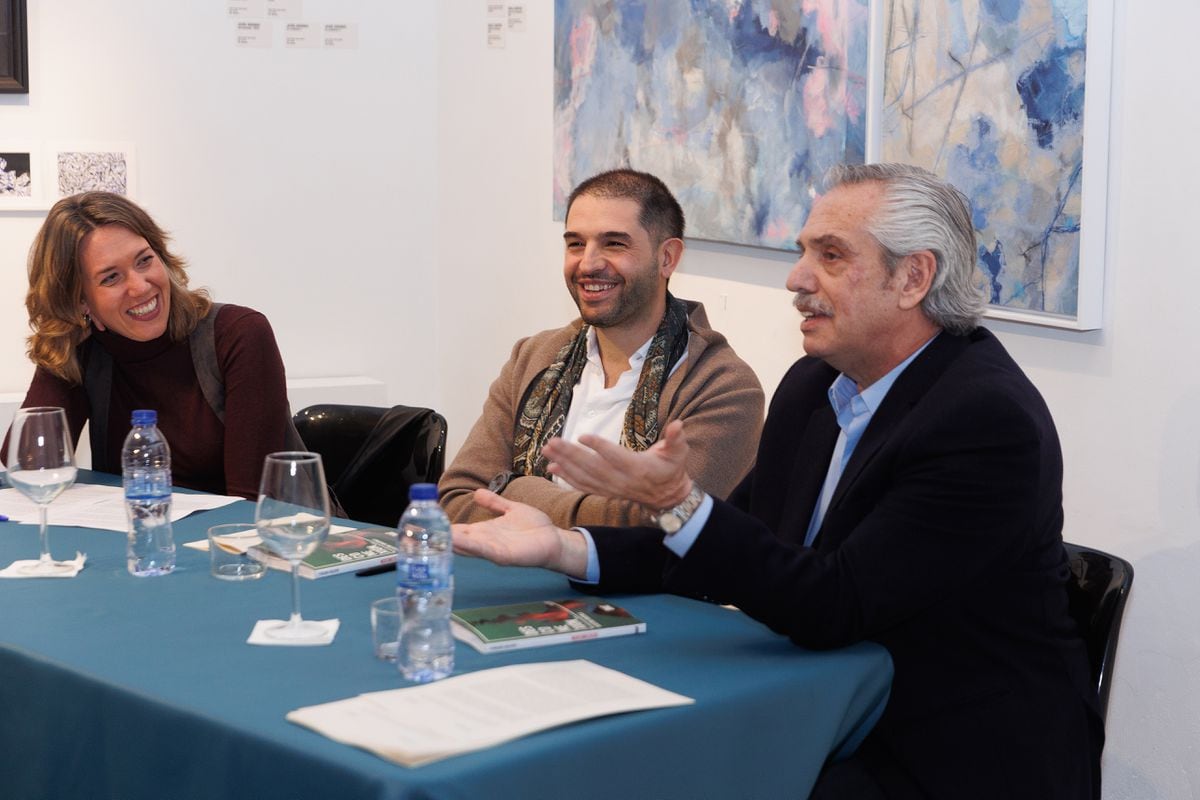Former President Alberto Fernández, who governed Argentina until the end of 2023, has returned to the country after two months in Spain.
The Peronist passed the baton to the far-right Javier Milei on December 10 and before the end of the year he left for Madrid to celebrate the holidays with his family, who had recently settled in the Spanish capital.
After his return to Buenos Aires last Friday, his permanence at the head of the Justicialista Party, which he has presided over since 2021, and his role in the opposition are unknown, as are his future plans.
There is no certainty about whether Fernández, 64, will return to Spain soon or remain in Argentina for the moment or what role he will play in the opposition.
Fernández's arrival at the Ezeiza International Airport, in Buenos Aires, was captured by the cameras of a news channel.
But the former president has not made official statements about his return.
Since Friday, everything has been speculation.
According to national media, governors and legislators of the Justicialista Party met before Friday to analyze the reorganization of the party.
Within Peronism, internal resistance to Fernández's leadership is not new.
Some sectors are publicly demanding that the former president step aside.
The Peronist union group 62 organizations, which at some point has become the most powerful union of unions in Argentina, demanded before Fernández's arrival in the country "the immediate resignation" of the former president from the presidency of the Justicialista Party and complained of that after leaving power the former president “fled to Spain, where it seems that he went into self-exile.”
Fernández left office and the country after four turbulent years of government.
The Peronist had won the presidency in 2019 and soon his approval levels fell.
His four-year term was marked by the covid-19 pandemic, the break with the vice president and mentor, Cristina Fernández de Kirchner, and an economy in crisis, without dollar reserves in the central bank and with inflation that exceeded 140%.
After the defeat of the Unión por la Patria alliance in the elections, Peronism was disarmed and its leadership vacant.
Until December 10, none of its main actors in the ruling party have emerged as clear opposition figures.
Alberto Fernández was abroad until now;
former candidate Sergio Massa, from the Frente Renovador, has made a few appearances;
Former Vice President Cristina Fernández de Kirchner has been absent and only broke her silence a week ago.
In a 33-page text, the former president criticized the Government's "ferocious adjustment program" and predicted that the far-right economic policy will increase unemployment "and social desperation in a kind of planned chaos" that paves the way for the dollarization she promised. President.
The reappearance of the former president was taken by some sectors of Peronism as “a roadmap”, while other spaces opted for silence.
Kicillof, a candidate for leader
While the course of Peronism is being defined, one of the names that is being heard to lead the unity of the movement is that of Axel Kicillof, a 52-year-old economist and Fernández de Kirchner's Minister of Economy at the end of his second Government (2012-2015).
Kicillof renewed his position as governor of the province of Buenos Aires in December.
From the largest electoral district in the country, a historically Peronist bastion, Kicillof is one of the most important figures who confronts Milei.
At the end of his term, Fernández continued to lead the Justicialista Party, the historic formation that brings together diverse expressions of Peronism.
In the 2023 elections, the party joined the Union for the Homeland alliance, which presented Sergio Massa as a presidential candidate, then Minister of Economy.
Peronism won the first electoral round, but then obtained one of the worst results in its history after being 11 points behind its rival, Javier Milei, in the second.
Fernández, who had stayed on the sidelines during the campaign, then left for Spain, where his wife, Fabiola Yáñez, and his son Francisco, almost two years old, were waiting for him.
“I will be back soon,” he warned on social networks.
“I am leaving for Spain on an Aerolíneas Argentinas flight, our Flag Line, to reunite with my family and spend Christmas and the New Year with them.
“I remain in permanent contact with the leaders of my party to address the prevailing events,” he said in a message.
In another, he added that he would return “to continue working as another militant” in the face of “the catastrophic economic situation that will result from the measures adopted” by the Milei Government.
Fernández settled in Madrid and barely interfered publicly in Argentine politics.
From abroad, he sent some messages to criticize the bill that Milei sent to Congress with more than 600 articles to dismantle the State;
to defend the president of Colombia, the leftist Gustavo Petro, from the grievances of the ultra, who called him a “murderous communist”;
to mourn the deaths of former Chilean president Sebastián Piñera and a former Argentine governor, and to publish a photo of his audience with Pope Francis in the Vatican.
In an interview with this newspaper, Fernández, who is a lawyer and professor at the University of Buenos Aires, announced in December that he had “some proposals” to “return to teaching” in Spain.
“I think it's okay for me to distance myself.
Felipe González said that former presidents are Chinese vases, because we are valuable, but they don't know where to put us,” he said.
Subscribe here to the
EL PAÍS América
newsletter and receive all the key information on current events in the region.

